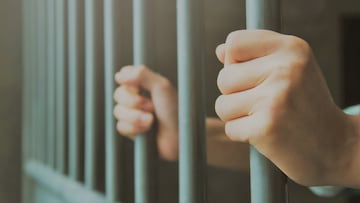Can people in prison vote? Requirements for prisoners to cast a ballot
Voting rights laws vary from state to state, but what about people in prison? Can they still vote? Here’s what to know.


In the United States, voting rights laws for incarcerated people vary by state. While most prisoners lose their right to vote upon incarceration, a handful of states allow voting if the individuals in question are serving sentences for misdemeanors or are awaiting sentencing, meaning they have not been convicted of any crime.
Only two states, Maine and Vermont, along with the District of Columbia, allow all incarcerated individuals to vote, regardless of their conviction. In these jurisdictions, prisoners can cast absentee ballots from their correctional facilities.
Related stories
Since voting laws and requirements for prisoners vary from state to state, visit the Restore your vote website, where you can learn whether an incarcerated person can vote based on their state, as well as their state’s requirements. If the answer is yes, individuals will most likely be able to vote via absentee ballot.
How incarcerated prisoners can vote
- Registration using their pre-incarceration address
- Absentee voting
- Access to voter guides and candidate information
- Assistance with completing forms and understanding the voting process
All you have to do is select the state the prisoner belongs to and answer a series of questions that will help determine whether the person is eligible to vote or not. This tool also works for ex-convicts, since there are some states that restore the right to vote to people who have already served their sentence.
Complete your personal details to comment